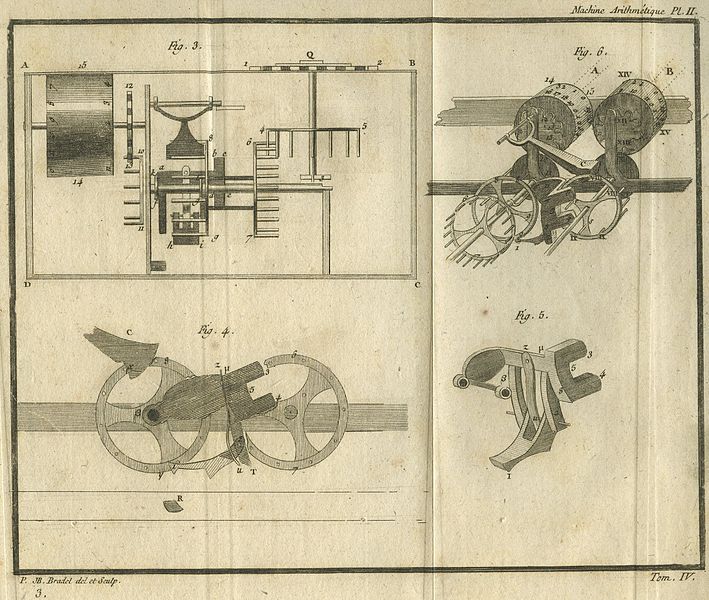for - youtube - interview - Layman Pascal - interviews - Lisa Maroski - Embracing Paradox, Evolving Language - BEing journey - language
Summary - Layman Pascal interviews Lisa Maroski, author of the book Embracing Paradox, Evolving Language in a wide-ranging conversation on contemporary language and how it could be transformed and transformative
- Nov 2025
-
www.youtube.com www.youtube.com
-
- Jul 2025
-
deadline.com deadline.com
- Nov 2024
-
en.wikipedia.org en.wikipedia.org
Tags
- Thomas Huxley
- Émile Borel
- William Shakespeare
- De Natura Deorum
- statistical mechanics
- Aristotle
- Arthur Eddington
- R. G. Collingwood
- accidental art
- Jorge Luis Borges
- Mécanique Statique et Irréversibilité
- Blaise Pascal
- dactylographic monkeys
- On Generation and Corruption
- infinite monkey theorem
- Cicero
- Jonathan Swift
Annotators
URL
- Oct 2024
-
www.goodreads.com www.goodreads.com
-
“All of humanity's problems stem from man's inability to sit quietly in a room alone.” ― Blaise Pascal, Pensées
-
- Nov 2023
- Sep 2023
-
delong.typepad.com delong.typepad.com
-
As Pascal observed three hundred years ago, "When we read too fast or too slowly, we understand nothing."
-
- May 2023
-
www.arts-et-metiers.net www.arts-et-metiers.net
-
www.futura-sciences.com www.futura-sciences.com
-
aconit.inria.fr aconit.inria.fr
- Dec 2022
-
www.zhihu.com www.zhihu.com
-
求讲解下列链接以及pascal嵌套子程序是如何实现的?
Tags
Annotators
URL
-
-
www.zhihu.com www.zhihu.com
-
从语言设计的角度来看, Pascal 是一门优秀的语言吗?
Tags
Annotators
URL
-
- Apr 2022
-
-
7 Notes could also focus on original thoughts, as in the Pen-sées of Blaise Pascal, the “commonplace book” of George Berkeley, or the Sudel-bücher of Georg Lichtenberg, which were devoted to original reflections ratherthan to excerpts from the writings of other authors.
Examples of notes focusing on one's original ideas and reflections rather than excerpts of others' works.
-
- May 2021
-
gordonbrander.com gordonbrander.comPensees1
-
There are rumors Pascal wrote the Pensées on notecards, and pinned these cards to a wall, connecting related thoughts with yarn. An early example of hypertext?
This certainly fits into the broad general ideas surrounding note taking, commonplace books, and zettelkasten as tools for thought. People generally seemed to have used relatively similar methods but shoehorned them into the available tools they had at the time.
This also, incidentally isn't too far off from how indigenous peoples the world over have used memory techniques (memory palaces, songlines, etc.) to hold together and pollinate their own thinking.
Raymond Llull took things a step further with his combinatoric methods, though I've yet to see anyone attempting that in the area of digital gardens.
-
- Feb 2021
-
en.wikipedia.org en.wikipedia.org
-
found that using only the Pascal-provided control structures, the correct solution was given by only 20% of the subjects, while no subject wrote incorrect code for this problem if allowed to write a return from the middle of a loop.
-
-
publicdomainreview.org publicdomainreview.org
-
The English physician and philosopher John Locke (1632-1704) was all too aware of the grip of amnesia and the shortness of memory. In his seminal Essay Concerning Human Understanding (1689) he wrote of his rival Blaise Pascal, who he named as the “prodigy of parts”, who “forgot nothing of what he had done, read, or thought.” Locke, in reaction, attempted to simulate Pascal’s "hyperthymesia", not in the mind, but upon the page: through the construction of a system of "commonplacing", as a form of what Swift called “supplemental memory”.
Interesting use of hyperthymesia here. Also Swift using the concept of "supplemental memory" giving at least a historical mile marker of the state of mnemotechy which may have been known at the time.
-
- Jun 2017
-
www.france-ioi.org www.france-ioi.org
-
Pascal
Le site associatif France-IOI propose de résoudre des problèmes d'algorithmique pour tous les niveaux en Pascal. Un compte est requis pour soumettre des programme, qui sont contrôlés et notés par un robot.
Tags
Annotators
URL
-



